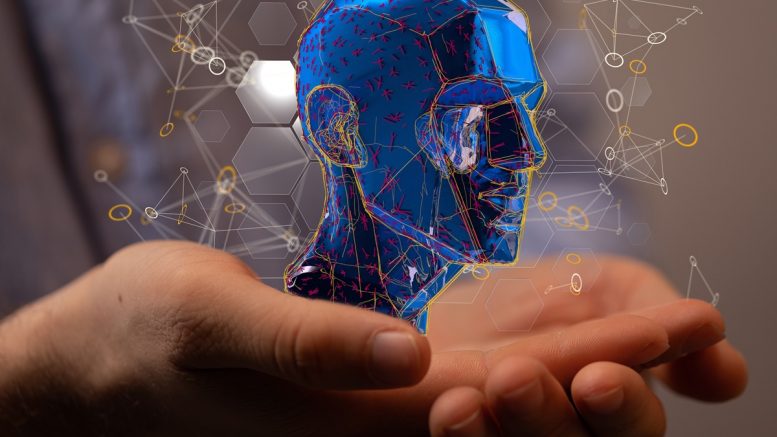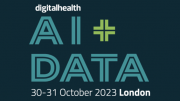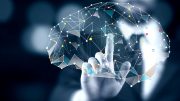Emerging technologies like artificial intelligence (AI) and machine learning continue transforming industries worldwide, and their applications in health care and medicine show great promise. Here’s how AI-educated patients will revolutionize the care experience, patient-doctor relationship, and many other aspects of this sector.
AI: Bridging the Gap Between Patients and Health Care Professionals
Around 20% of the U.S. and Canadian populations read at or below the fifth-grade level, and a significant portion of the adult population reads at the seventh- to eighth-grade level. AI can bridge the gap between patients and health care providers by making educational material accessible and easily understandable.
Medical communication continues to be a critical issue in patient-doctor relationships. While most people are eager to learn more about their existing conditions, they may need help with medical jargon and other technical terms. Popular AI tools like ChatGPT and Google Bard help people understand complex ideas and terminologies, thus improving the patient experience.
AI-educated and informed patients are more likely to follow doctors’ advice, stick to treatment schedules and adhere to strict dietary plans. They’re also more engaged when they better understand what they’re going through, encouraging them to ask more relevant questions about their condition and current state of health.
How AI Is Transforming the Health Care Industry
AI use in health care can empower patients and medical professionals by opening new opportunities that make receiving and providing care easier, more intuitive and efficient. Some of the ways AI is currently being utilized include the following:
- Augmenting health workers’ performance: AI assists trained professionals in improving their efficiency and performance by giving them the right tools for every job. From diagnosis and treatment to diet recording and patient updates, AI can make life easier for health care workers and their patients.
- Alleviating heavy workloads: AI can handle repetitive tasks with better accuracy and speed, giving workers more time to focus on critical functions like providing health care to patients. Hospitals and other medical facilities are also often short-staffed, and AI can fill noncrucial roles to help out.
- Capturing data quickly and accurately: AI can handle large amounts of data quickly and efficiently. Patient data is vital to keeping operations going smoothly so licensed professionals can make actionable decisions from diagnosis to treatment.
- Predicting patterns and identifying risks: AI can be trained to predict patient history patterns. It can also help pinpoint possible outcomes by factoring risks and other elements into its computations. This can help doctors create better, personalized treatment plans.
- Scheduling appointments: Patients can use AI to find suitable doctors for their conditions and schedule appointments with them quickly and conveniently. They can schedule online and telephone consultations to ask for medical advice using an AI scheduler.
- Streamlining hospital discharge systems: Discharging is one of the most time-consuming and often frustrating phases of being inpatient. AI can take over processing and payment so hospitals can shorten turnaround times and improve people’s experiences when leaving facilities.
- Analyzing medical images and other results: AI can analyze X-rays, CT scans, MRIs, and other findings to detect abnormalities and inconsistencies quickly and accurately. Doctors and other health care professionals can capitalize on this feature to improve service agility.
Tackling AI Concerns in Health Care and Medicine
AI has pros and cons that must be weighed seriously, especially in the health care industry. It’s such a vital issue that around 350 scientists and CEOs expressed concerns about AI at a tech summit in Dublin, Ireland. The world is treading in largely unknown territory with AI, and many entities, including the World Health Organization, understand this.
To address issues, WHO convened with leading experts in ethics and other fields like digital technology, law and human rights and produced a report titled Ethics & Governance of Artificial Intelligence for Health. The product of the 18-month deliberation identified six ethical principles to ensure AI is working for the public’s benefit in health care and medical industries:
1. Protect autonomy: Humans should have the final say on all health care decisions involving AI.
2. Promote human well-being, safety and public interest: Developers must ensure AI works as it should and prevents patient harm.
3. Ensure transparency, explainability and intelligibility: Transparency should be one of developers’ main priorities. AI tool design should be made public.
4. Foster responsibility and accountability: Someone should be held accountable when something goes wrong with AI, and there must be clear guidelines to determine who is responsible.
5. Ensure inclusiveness and equity: All AI tools must be available in multiple languages to promote inclusivity.
6. Promote responsive and sustainable AI: Developers should update AI regularly, and specific protocols should be in place if an AI tool becomes ineffective. Devices must also be available for repair, even in under-resourced health systems.
Passionate Health Care as a Universal Human Right
Receiving proper care in times of illness or injury should be a right and not a privilege for all. AI can help create a safer and more inclusive space by empowering patients and the professionals who treat them. The health care industry should capitalize on useful, accessible information and develop technologies to help everyone.
By Devin Partida, Rehack





